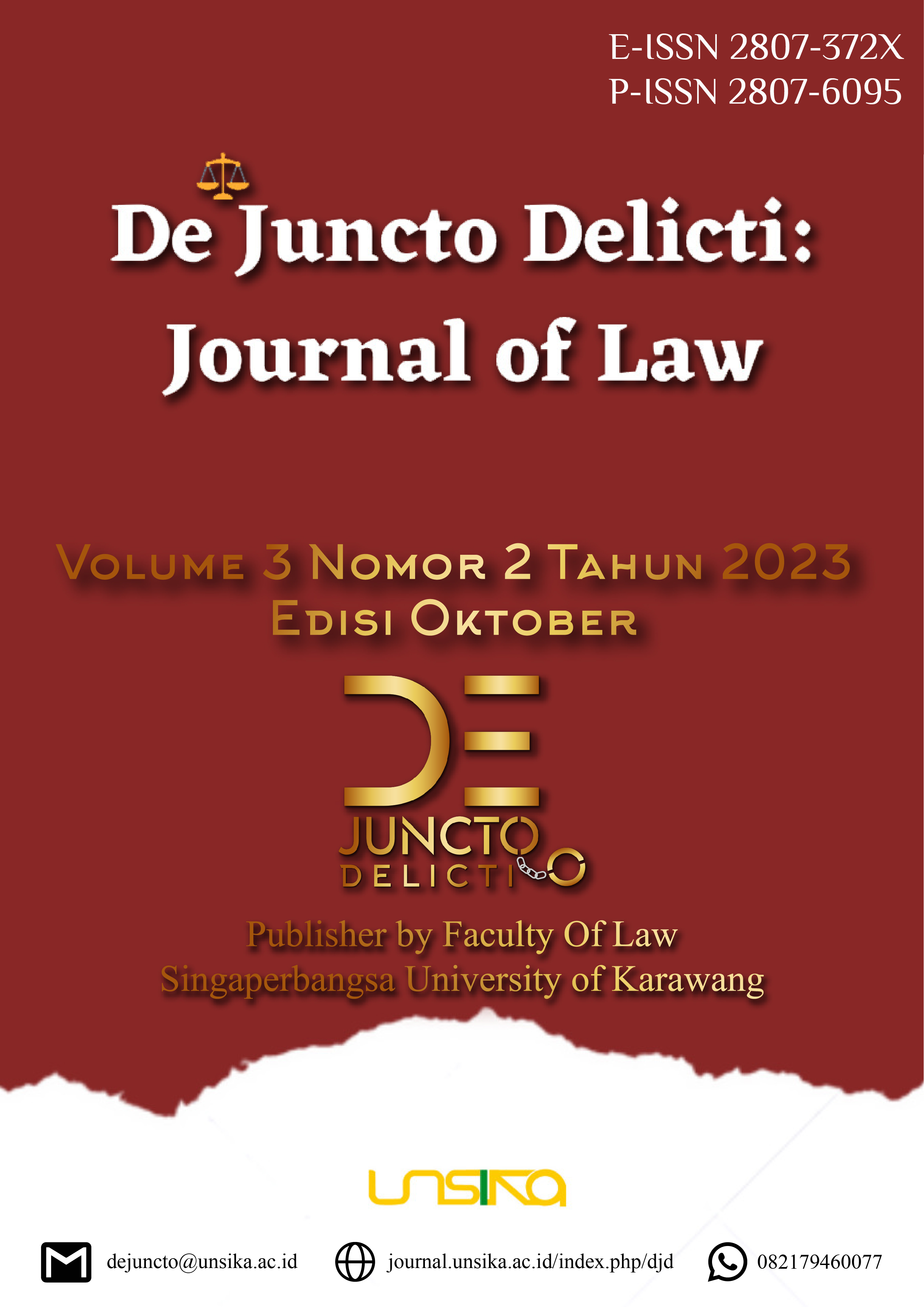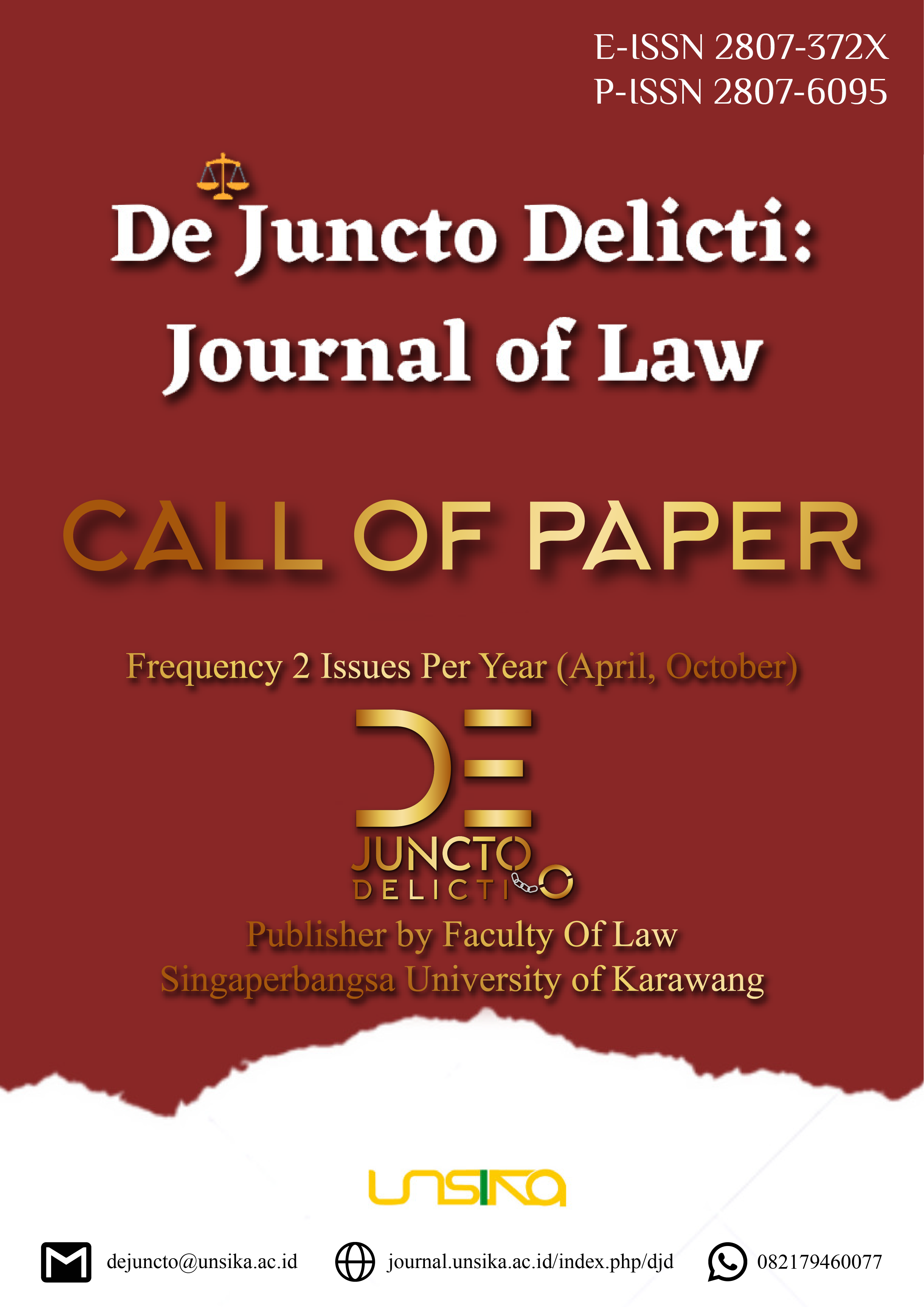PROSES PEMERIKSAAN TERHADAP PELAKU TINDAK PIDANA KORUPSI BERDASARKAN UU NO. 46 TAHUN 2009 TENTANG PENGADILAN TINDAK PIDANA KORUPSI
DOI:
https://doi.org/10.35706/djd.v3i2.7909Abstrak
ABSTRAK
Korupsi merupakan salah satu tindak pidana tertentu yang bersifat serius,terorganisir yang telah menimbulkan masalah dan ancaman serius, karena dapat membahayakan stabilitas dan keamanan negara. dampak yang ditimbulkan dari tindak pidana korupsi dapat merusak nilai-nilai demokrasi, moralitas,merugikan keuangan negara, pelanggaran terhadap hak-hak sosial dan ekonomi masyarakat serta merupakan ancaman terhadap cita-cita menuju masyarakat adil dan makmur. Penelitian ini berjudul "Proses pemeriksaan terhadap pelaku tindak pidana korupsi berdasarkan UU No.46 Tahun 2009 tentang pengadilan tindak pidana korupsi". Metode yang digunakan dalam penelitian ini adalah metode normatif berbasis studi Literatur,yaitu metode riset yang mengacu pada berbagai data sekunder seperti peraturan perundang-undangan keputusan pengadilan teori hukum, dan berupa pendapat parasarjana. Serta sumber tertulis, baik berupa buku-buku, arsip, majalah, artikel, dan jurnal,atau dokumen-dokumen yang relevan dengan permasalahan yang dikaji. Hasil penelitian menunjukkan bahwa tidak ada lagi pengadilan umum atau khusus lain yang memiliki wewenang memeriksa dan mengadili perkara tindak pidana korupsi selain pengadilan khusus yang dibentuk berdasarkan Undang-Undang Nomor 46 Tahun 2009 yang berada pada pengadilan umum.
Kata Kunci: Korupsi, UU, pemeriksaan, pengadilan.
ABSTRACT
Corruption is a serious, organized crime that has caused serious problems and threats, because it can endanger the stability and security of the state. The impact of corruption can damage democratic values, morality, harm state finances, violate social and economic rights of the community and is a threat to the ideals of a just and prosperous society. This research is entitled "The process of examining the perpetrators of criminal acts of corruption based on Law No. 46 of 2009 concerning the Court of Corruption". The method used in this study is a normative method based on literature studies, namely a research method that refers to various secondary data such as laws and regulations, court decisions, legal theory, and the opinion of scholars. As well as written sources, either in the form of books, archives, magazines, articles, and journals, or documents relevant to the problems studied. The results of the study indicate that there is no other general or special court that has the authority to examine and adjudicate cases of criminal acts of corruption other than the special court established under Law Number 46 of 2009 which is in the general court.
keywords: corruption, law, examination, court.










 Organized by: Lembaga Kajian Hukum, Universitas Singaperbangsa Karawang
Organized by: Lembaga Kajian Hukum, Universitas Singaperbangsa Karawang
